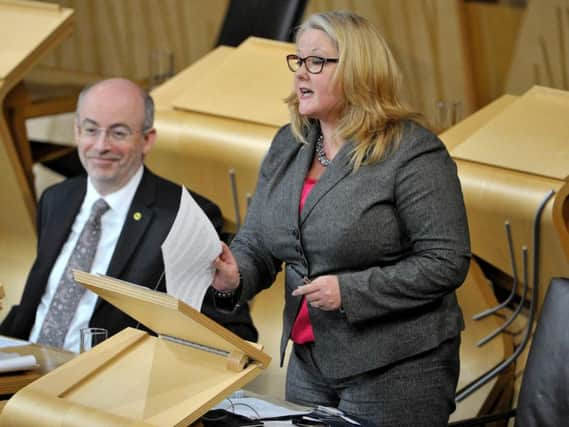Plans to halt female genital mutilation can be 'effective', MSPs told


Equalities minister Christina McKelvie spoke out as the general principles of legislation for the orders were unanimously approved at Holyrood.
She said measures similar to those being proposed for Scotland had been introduced elsewhere.
Advertisement
Hide AdAdvertisement
Hide AdMs McKelvie said these had been "an effective and proven approach to reducing the risk to potential victims".
While FGM has been a criminal offence in the UK since 1985, the Female Genital Mutilation (Protection and Guidance) (Scotland) Bill aims to provide extra protection to those at risk.
The Bill would put in place statutory guidance from the Scottish Government as well as FGM protection orders, which could be brought before courts to care for a person after the act has been carried out or to help someone at risk.
Using the orders, the courts will have the power to have the protected person taken to a place of safety.
Ms McKelvie said the prevalence of FGM in Scotland was "difficult to estimate because of the hidden nature of the crime". But she made clear it is a form of violence against women.
She said: "As the minister responsible for the Scottish Government's work in this area I am committed to preventing FGM in Scotland and ensuring girls and women at risk from FGM are protected from harm.
"This is an important Bill which will make a real difference to women and girls at risk of, or who have experience the abhorrent practice of FGM."
In 2016, Unicef suggested 200 million women were living with the effects of FGM in around 30 countries, most of which were in Africa.
Advertisement
Hide AdAdvertisement
Hide AdTory MSP Annie Wells said: "Thankfully the practice is far from the norm in Scotland and the UK but we still should send a clear message about how wrong the practice is and do whatever we can to prevent it."
Labour's Elaine Smith said: "There are really no words to describe how barbaric this procedure is, usually performed on small girls without anaesthesia and little or no hygiene, and often it can be fatal."